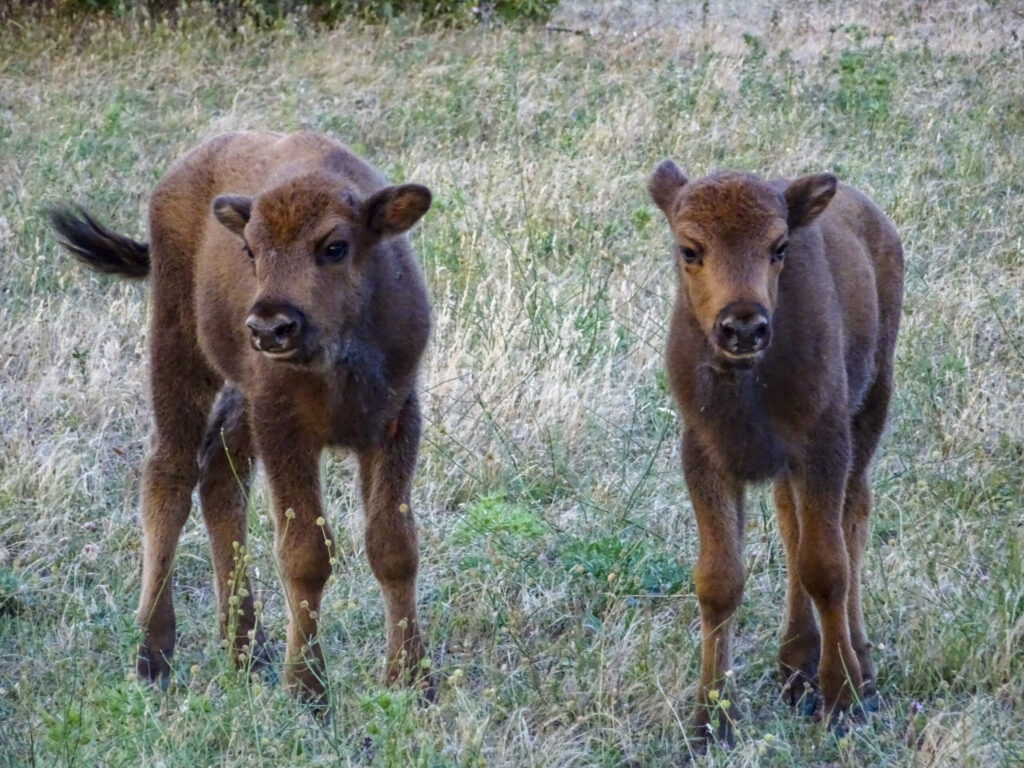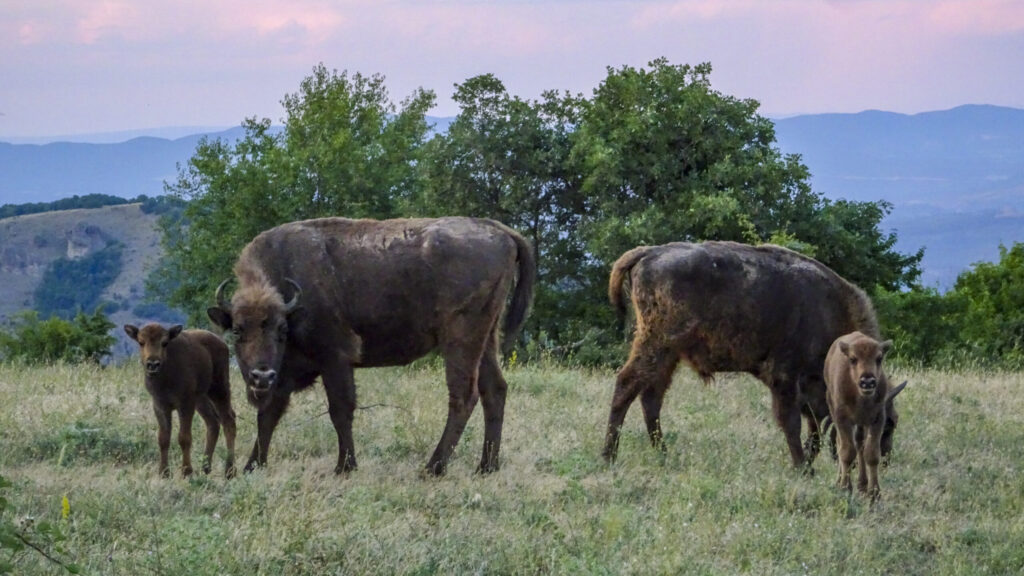Bulgaria’s Rewilding Rhodopes team were overjoyed to record the births of four bison calves in May and June this year – the highest number of calves to have been born in a single season since bison were reintroduced to Bulgaria’s Rhodope Mountains in 2019.

Bison baby boom
All the new mothers and their calves are reportedly doing well, with the team continuing to monitor them on a daily basis. The first Bulgarian bison to be born in the wild for centuries was recorded in 2019 when Nadezhda (meaning ‘Hope’ in Bulgarian) became the first bison to be born south of the River Danube since the Middle Ages. Now, this year’s record breeding success is a clear sign that the herd – which has grown to number nineteen animals – has settled in happily to their new home.
One of the new mothers is herself a new arrival, having been translocated from Poland’s Bieszczady Mountains, together with two other females, earlier this year. The Rewilding Rhodopes team is currently witnessing a process of socialization, with the three Polish bison gradually integrating themselves into the established herd, and it is hoped that the birth of this Polish calf alongside its Bulgarian herd mates may help to further strengthen the growing bonds within this cosmopolitan herd.

A healthy herd
“At the end of their pregnancy, females move away from the main herd to give birth, before returning after one to three weeks with their new calves,” says Hristo Hristov, Rewilding Officer for Rewilding Rhodopes, explaining that the process of socialization is an ongoing one. “Every now and then, the animals gather into a single herd and then separate again. However, this is normal because the socialization process can take quite some time – even a whole year. So far, the adaptation of the newly arrived animals is going well.”
Members of the Rewilding Rhodopes team have been working on the breeding of European bison since 2013, when five bison from Germany were brought to the bison breeding site at Studen Kladenets Reservoir in the core rewilding area of the Rhodope Mountains. This fledgling herd was boosted by the arrival of more animals from zoos in Germany in 2017 and from Hungary and Slovakia in 2020, before the latest three additions arrived from the State Forests in Poland’s Bieszczady Mountains.
Re-establishing natural rhythms
Following their release into the wild in 2019, the free-ranging European bison of the Rhodope Mountains have gradually started to occupy their unique ecological niche, helping to restore a mosaic of biodiversity-rich clearings in the wooded landscape, opening up gaps in the vegetation through their grazing and browsing, letting in light, aiding seed germination and creating innumerable opportunities for all sorts of other organisms.
Alongside reintroduced red and fallow deer, large herbivores are restoring other natural processes too, attracting the attention of local wolves, while their carcasses will help feed the Rhodope Mountains’ important vulture population. The bison herd has also begun to make seasonal migrations, spending the autumn and winter in the lower part of the Studen Kladenets rewilding area, before climbing to the higher, less accessible parts of the mountains in spring and summer.
The birth of four bison calves is a potent symbol of these many new beginnings, with the re-establishment of all these natural rhythms and cycles throughout the Rhodope ecosystem testament to the restorative potential of rewilding action, and the power of hope.
